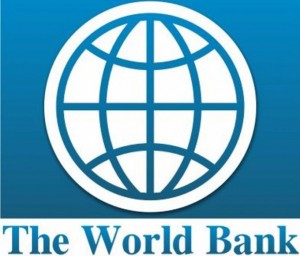World Bank adds $12m to land,water sustainability project
 The World Bank has offered Ghana a second Global Environment Facility (GEF) grant of $12.76 million to scale-up Sustainable Land and Water Management (SLWM) interventions in selected watersheds and forest fringe communities in the Northern sector.
The World Bank has offered Ghana a second Global Environment Facility (GEF) grant of $12.76 million to scale-up Sustainable Land and Water Management (SLWM) interventions in selected watersheds and forest fringe communities in the Northern sector.
A statement by the Bank said the additional financing grant will help increase the coverage of the sustainable land and water management project in the Northern Savannah zone of Ghana from an original 6,000 hectares to 15,000 hectares and from an original 10 districts to 12 (West Gonja and Sawla-Tuna-Kalba Districts), with a focus on root and tuber cultivation.
The Sustainable Land and Water Management project is expected to contribute to enhancing food security and climate change resilience of the beneficiary communities in the Northern Savannah region which is characterized by vulnerability, low climate resilience, and high poverty.
The second additional financing grant to the SLWM project started in 2011, brings the total GEF grants to $29.7 million, extending the project’s closing date by 2 years and 9 months to November 30, 2020.
The World Bank said some of the key achievements of the SLWM project include a total of 9,388 land users adopting SLWM practices covering an area of 3,090 hectares, and 24,224 persons benefitting from the project interventions, of which 40 per cent are women.
According to the Bank, “the agricultural landscape and the corridor areas under sustainable land and water management have been made productive through farming techniques such as contour bunds, zero tillage, crop rotation, intercropping with legumes, composting, mulching, protecting buffer zones and planting trees along river banks.”
It said forest fringe communities will also continue to receive training on wildfire management and volunteer fire squads equipped with field equipment.
The project’s priorities are said to be aligned with Ghana’s vision of modernizing the agricultural sector to improve food security in an environmentally sustainable manner with a focus on smallholder farmers.
World Bank Country Director for Ghana Henry Kerali, was quoted as saying: “This project addresses environmental and land degradation through improved community-driven management of natural resources based livelihoods. It complements the World Bank’s poverty reduction and shared prosperity efforts supported by other Bank financed projects in Northern Ghana and is consistent with government’s development agenda.”
By Emmanuel Odonkor
